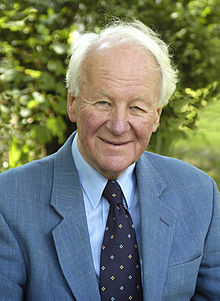As exemplified by the late John Stott, the philosophy of annihilationism has been spreading, even among professed evangelicals. Annihilationism is the belief that unbelievers do not suffer eternal punishment in hell, the traditional view, but rather are extinguished, either at death or at the final Judgment. While it has been connected historically to the Jehovah's Witnesses and Seventh-Day Adventists (and their Armstronist offshoots), this heresy has been gaining acceptance in more otherwise-traditional churches.
I am currently reading the book Hell under Fire, edited by Christopher W. Morgan and Robert A. Peterson. While the book deals with evangelical universalism as well as annihilationism, I am currently reading just the annihilationism portion. In it is a chapter by theologian Douglas Moo, entitled "Paul on Hell," pp. 104-5. In it, he addresses the argument of annihilationists that "everlasting" and its synonyms refer to irrevocable extinction, rather than to continuous punishment. The Greek words at issue are olethros and apollumi/apoleia. He says: "Leaving aside, for the moment, judgment texts, none of the key terms usually has this meaning [i. e., 'irrevocable'] in the Old and New Testaments. Rather, they usually refer to the situation of a person or object that has lost the essence of its nature or function... The key words for 'destroy' and 'destruction' can also refer to land that has lost its fruitfulness (olethros in Ezek. 6:14; 14:16 [LXX]); to ointment that is poured out wastefully and to no purpose (apoleia in Matt. 26:; Mark 14:4); to wineskins that can no longer function because they have holes in them (apollumi in Matt. 9:17); Mark 2:22; Luke 5:37); to a coin that is useless because it is 'lost' (apollumi in Luke 15:9); or to an entire world that 'perishes,' as an inhabited world, in the Flood (2 Pet. 3:6). In none of these cases do the objects cease to exist; they cease to be useful or to exist in their original, intended state."
Saturday, July 26, 2014
Contra Annihilationism: "Destruction" is not the Same Thing as "Extinction"
Labels:
2 peter,
annihilationism,
ezekiel,
false teachers,
hell,
luke,
mark,
matthew
Subscribe to:
Post Comments (Atom)





No comments:
Post a Comment